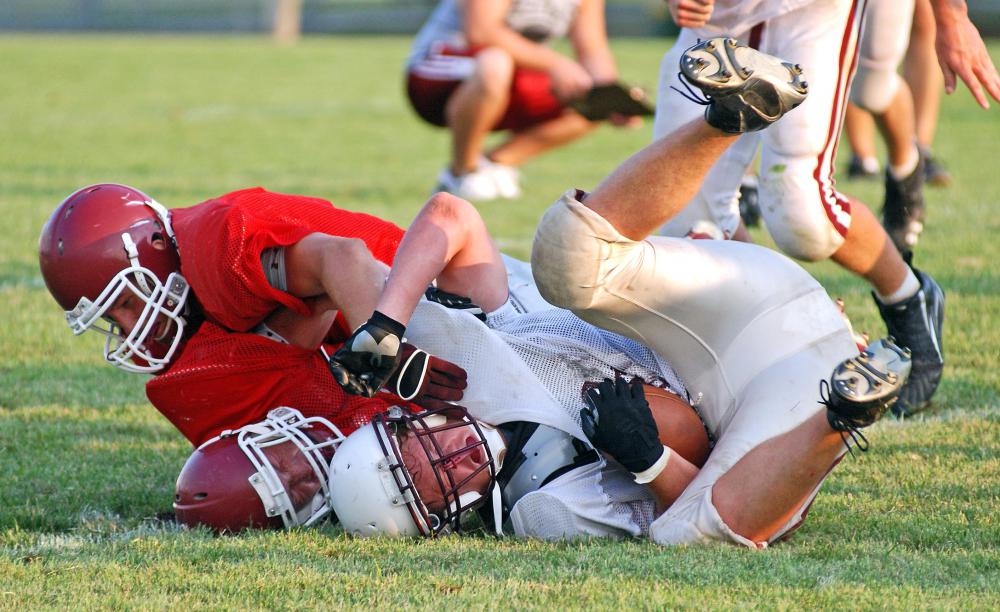At TheHealthBoard, we're committed to delivering accurate, trustworthy information. Our expert-authored content is rigorously fact-checked and sourced from credible authorities. Discover how we uphold the highest standards in providing you with reliable knowledge.
What are Common Causes of Lightheadedness and Fatigue?
Lightheadedness and fatigue are two common symptoms that can have a variety of causes. The symptoms may appear on their own or together, and may not be simultaneous even if they are connected to the same cause. The causes of lightheadedness and fatigue are often minor and a result of a temporary health problem. In some cases, however, these symptoms can become a chronic problem and may indicate a more serious underlying condition.
Lightheadedness can be described as similar to dizziness. Some people feel weightless, are unable to walk or think normally, or become faint. Fatigue is an extremely common symptom that makes a person feel tired, listless, or weak. Both lightheadedness and fatigue can be mild enough to shake off in a few seconds, or severe enough to want to stay in bed all day.

Often, lightheadedness and fatigue are caused by a disruption of the systems bodily functions due to inadequate nutrition or other problems. Hypoglycemia, also known as low blood sugar, occurs when the body runs low on energy-providing glucose, and may cause lightheadedness and fatigue. Dehydration or not getting enough sleep can also cause an appearance of these symptoms. An episode of fatigue and feeling lightheaded usually ends when the disruption to normal food, water, or sleep patterns is addressed.

Some medical conditions and medical treatments can cause the appearance of these symptoms. People with diabetes may be more likely to develop hypoglycemia as a result of an insulin imbalance that their bodies cannot correct without medication. Other conditions, such as thyroid imbalances, may also result in fatigue and dizziness if not correctly managed. Many prescription medications list both fatigue and lightheadedness as possible side effects of the drugs.

If a person has sustained a head or neck injury, fatigue and lightheadedness can be signs of a serious problem. Injuries to the head can cause concussion, loss of consciousness, swelling in the brain, or other potentially severe conditions. Anyone who has difficulty remaining awake or experiences extreme dizziness or lightheadedness after an injury may need medical attention immediately.

More serious causes of fatigue and lightheadedness are rare, but may be investigated by doctors if the symptoms become chronic. Heart problems that prevent proper blood and oxygen circulation may cause exhaustion and dizziness; similarly, low levels of oxygen in the blood can have the same effect. Inner-ear problems and cancerous or non-cancerous tumors in the brain can also cause both of these symptoms to become chronic. Generally, if symptoms persist for over two weeks, medical consultation is often recommended.
AS FEATURED ON:
AS FEATURED ON:


















Discussion Comments
I did a diagnostic laparoscopy five weeks ago for infertility. Very minor endometriosis was found and a few adhesions were removed. The surgery has healed very well with no pain. But I have been feeling very unwell due to constant fatigue, weakness, dizziness and palpitations. I have loss all my vitality and strength. I have done a full blood test but everything was OK. I feel so helpless I don't know what to do as no doctor is able to find a solution for my problem. I just want to feel like before the surgery! The doctor who did the lap just doesn't want to take any responsibility of how I am feeling. Has the surgery made all my hormones go topsy-turvy?
I have been dealing with constant fatigue ever since I got married two years ago. I had no idea that I would be taking on so much housework and so many chores, and that alone tires me out enough so that I am very sleepy by bedtime.
The problem is that I can't sleep well at night, even though I'm tired. My husband tosses and turns, and since he is very tall, he often spreads out so that he takes up the whole bed in his sleep. I can push his leg over with my foot, but every time he flops around, I wake up, because I am a light sleeper.
So, a couple of times a week, he will offer to sleep on the couch so that I can get a good night's rest. I'm glad that he does this, because otherwise, I would probably develop some serious health issues from lack of sleep. On days when I haven't slept well the night before, I stay lightheaded and tired throughout the day.
I always get lightheaded and extremely tired when I work out in the yard on a hot day. I have heard that these are two early warning signs of heat exhaustion, so once I become dizzy, I take a break in the cool house.
All that squatting and standing up over and over is enough to cause lightheadedness. I have a long row of lilies that I have to weed around, and by the time I reach the end, I am exhausted and very dizzy.
Since the lilies bloom in summer, I have to pick my work times carefully. I try to wait until late in the day when the bed is in the shade or until a cool, cloudy day that is a rarity but does happen.
@cloudel – I wish the solution to my medication issues could be as simple as that. I have to take allergy medication several times during the day, and it causes dizziness, fatigue, and grogginess.
I tried taking one of those 24-hour antihistamines and swallowing the pill at night before bed, but it never worked for more than a few hours. I have extreme allergies, and I have to take antihistamines every four hours for them to do any good.
I absolutely hate using them at work. I get so sleepy that I can hardly hold my eyes open, and this makes me feel like I haven't slept in days. The room spins, and it is hard to focus on my computer screen. Also, I believe it makes driving home dangerous.
I am on blood pressure medication that causes both dizziness and fatigue. To me, feeling dizzy and feeling lightheaded are the same thing. Both put me off of my game.
When I first started taking the medication, I would take it in the morning. It would affect my performance at work throughout the day, so I decided to try taking it at night instead.
I stopped feeling so out of it and tired during the day. As a bonus, taking the medicine at night made it easier for me to fall asleep and sleep soundly throughout the night.
Post your comments